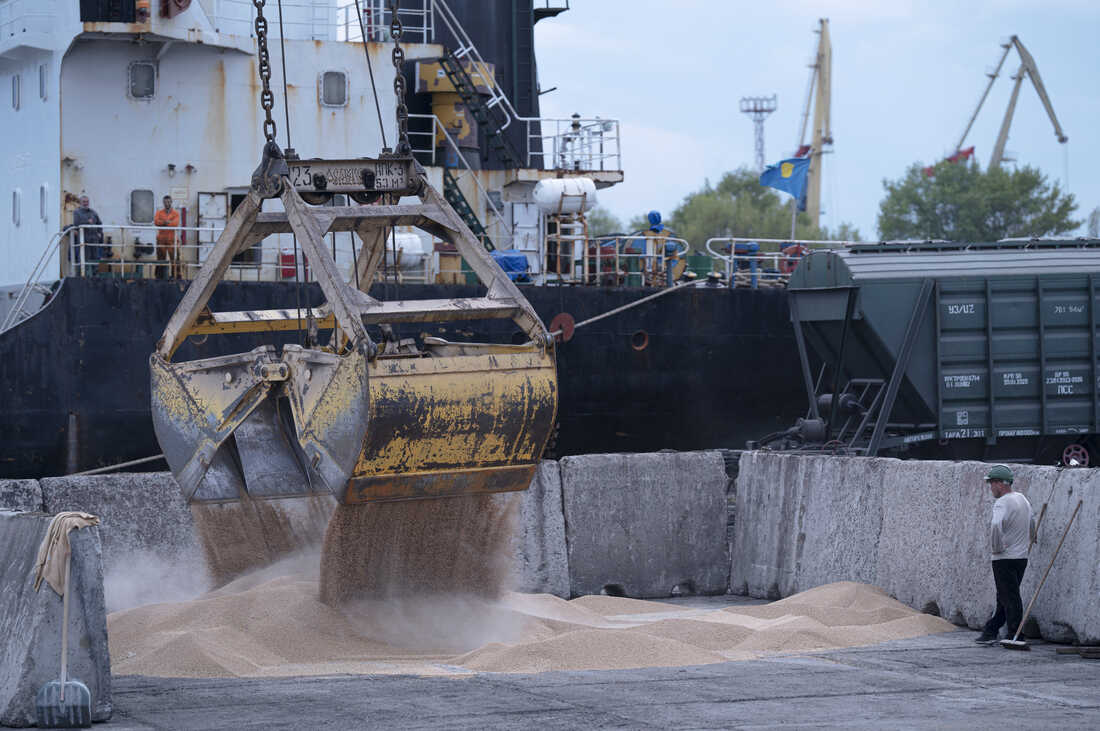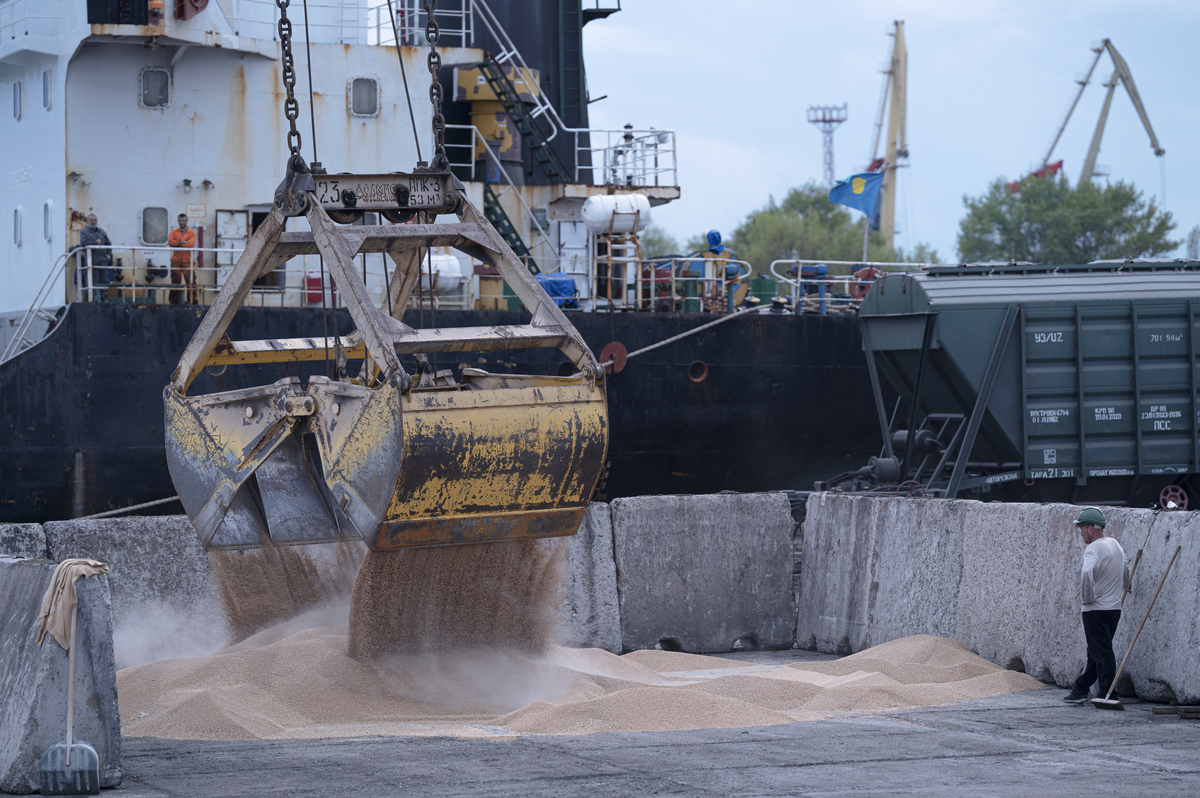
Enlarge this image
Workers load grain at a port in Izmail, Ukraine, on April 26. A United Nations-backed deal has been extended allowing shipments of Ukrainian grain through the Black Sea to parts of the world struggling with hunger. Andrew Kravchenko/AP hide caption
toggle caption Andrew Kravchenko/AP
Workers load grain at a port in Izmail, Ukraine, on April 26. A United Nations-backed deal has been extended allowing shipments of Ukrainian grain through the Black Sea to parts of the world struggling with hunger.
Andrew Kravchenko/APAn agreement allowing Ukrainian grain exports to ship through the Black Sea to help ease global hunger has been extended for two months just a day before its expiration — overcoming Russia's threats to pull out of the deal.
Turkish President Recep Tayyip Erdogan on Wednesday announced the extension of the United Nations-backed Black Sea Grain Initiative, which is aimed at easing global hunger.
"I have good news," Erdogan said in a statement. "With the efforts of our country, the support of our Russian friends and contribution of our Ukrainian friends, the Black Sea Grain Initiative has been extended by another two months."
"May it be beneficial to the whole world," added Erdogan, who is seeking reelection in a runoff vote on May 28.
Russian and Ukrainian government officials also confirmed the deal's extension.
Russia complains the deal doesn't unsnarl its shipmentsRussia has threatened repeatedly to withdraw from the nearly 10-month-old deal over complaints that it fails to deliver on a promise to free up Russian agricultural exports that Moscow says have been blocked by Western sanctions. While food and fertilizers are not under sanctions, Russia says sanctions-related restrictions on its banking, transit and insurance make trade untenable.
"Moscow agreed to the extension of the grain deal, given that it is counting on problems with the Russian portion of the agreement to be resolved," Russian Ambassador to the U.N. Vassily Nebenzia told reporters.
Russian Foreign Ministry spokesperson Maria Zakharova said "distortions" in the deal should be "fixed at maximum speed."

The Picture Show Photos: A close-up look at Ukraine grain export inspections
Meanwhile, Oleksandr Kubrakov, who serves as Ukraine's deputy prime minister and minister of development and infrastructure, said on Facebook the deal has been extended until July 18.
"The world will continue to receive Ukrainian goods, thanks to the efforts of our partners, Turkey and the U.N.," he wrote.
But he said Russia must stop using food "as a weapon and for blackmail."
Wheat for poorer countriesThe U.N. and Turkey brokered the Black Sea Grain Initiative in July last year to help ease a global food crisis and spiking food prices exacerbated by the war in Ukraine.
The crisis worsened with Russia's naval blockade of Ukraine's Black Sea ports — preventing key Ukrainian exports such as wheat and sunflower oil from reaching world markets.
Russia, in turn, complained that Ukraine had heavily mined the waters of the Black Sea, making trade and transit impossible.

Goats and Soda Even remote corners of Africa are feeling the costly impacts of war in Ukraine

Goats and Soda The impact of the Ukraine war on food supplies: 'It could have been so much worse'
Under the agreement, ships from both sides can use a humanitarian sea corridor before facing inspections at a U.N.-run hub in Turkey.
The U.N. says the initiative has enabled the shipment of more than 30 million metric tons of grain and other foodstuff, much of it to poor and developing countries.
Ukraine is traditionally a leading exporter of grain and has relied on the exports to keep its economy on life support during the war.








